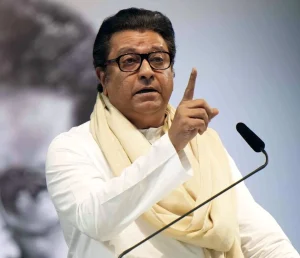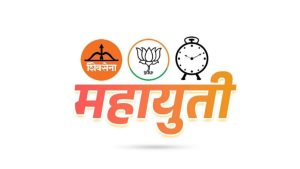Maharashtra: There has been an intense debate surrounding the state government’s decision to issue new liquor permits. The controversy over Maharashtra liquor licences has emerged as a significant point of contention between the ruling Mahayuti coalition and opposition parties, highlighting deeper concerns about governance, social welfare, and legislative processes.
Opposition leader Ambadas Danve has launched a scathing attack on the Mahayuti government’s liquor licensing policy, specifically targeting the decision to issue 328 new permits across the state. Danve’s criticism centres on allegations that the Maharashtra liquor licences distribution process lacks transparency and primarily benefits individuals with close connections to the ruling coalition.
The opposition leader has raised fundamental questions about the government’s priorities, arguing that the focus on expanding alcohol availability contradicts the state’s commitment to social development and public welfare. According to Danve, the new licensing policy represents a misallocation of administrative resources that could otherwise be directed toward addressing pressing social issues.
 The Maharashtra government’s approach to the Maharashtra liquor licences has drawn criticism for its scope and implementation timeline. The decision to issue 328 new permits represents a significant expansion of the state’s alcohol retail network, raising concerns about the potential social and economic implications of increased alcohol availability.
The Maharashtra government’s approach to the Maharashtra liquor licences has drawn criticism for its scope and implementation timeline. The decision to issue 328 new permits represents a significant expansion of the state’s alcohol retail network, raising concerns about the potential social and economic implications of increased alcohol availability.
Critics argue that the licensing process lacks adequate public consultation and transparency measures. The opposition contends that the government has failed to provide sufficient justification for the substantial increase in liquor outlets, particularly in areas where social welfare programs require urgent attention and funding.


The concern extends beyond immediate resource allocation to broader questions about the state’s development priorities. Critics argue that expanding alcohol availability through increased Maharashtra liquor licences could undermine efforts to address social problems such as poverty, education gaps, and healthcare access, particularly in rural and economically disadvantaged areas.
 In response to mounting criticism, Deputy Chief Minister Ajit Pawar has attempted to address concerns surrounding the Maharashtra liquor licences policy. Pawar’s intervention represents the government’s effort to manage the political fallout while maintaining its policy direction.
In response to mounting criticism, Deputy Chief Minister Ajit Pawar has attempted to address concerns surrounding the Maharashtra liquor licences policy. Pawar’s intervention represents the government’s effort to manage the political fallout while maintaining its policy direction.
The Deputy Chief Minister has provided assurances that future licensing decisions will involve greater legislative oversight. This commitment to requiring legislative approval for new Maharashtra liquor licences represents a significant procedural change that could address some opposition concerns about transparency and accountability.


The requirement for legislative approval could address opposition concerns about the lack of democratic oversight in the current licensing system. By involving elected representatives in the approval process, the government aims to demonstrate greater accountability in its management.
Also read: Maharashtra liquor licences.
The controversy surrounding it has broader implications for the political landscape in Maharashtra. The debate reflects deeper tensions between different approaches to governance, economic development, and social policy priorities.
The opposition’s criticism of the licensing policy has provided a platform for broader discussions about the government’s performance and policy priorities. The focus on Maharashtra liquor licences has become a symbol of larger concerns about transparency, accountability, and the government’s commitment to social welfare.
The economic dimensions of the Maharashtra liquor licences debate involve questions about revenue generation, employment creation, and market regulation. Supporters of the licensing expansion argue that increased alcohol retail opportunities could generate additional tax revenue and create employment opportunities in the hospitality and retail sectors.
However, critics question whether the economic benefits justify the potential social costs associated with increased alcohol availability. The debate over Maharashtra liquor licences thus involves complex considerations about balancing economic development with social responsibility.
The controversy over Maharashtra liquor licences has highlighted the need for comprehensive policy frameworks that balance various stakeholder interests. The government’s commitment to requiring legislative approval for future licenses represents one step toward addressing these concerns.
Moving forward, the management of Maharashtra liquor licences will likely involve greater emphasis on transparency, public consultation, and legislative oversight. These changes could help address opposition concerns while maintaining the government’s broader policy objectives.
The debate over Maharashtra liquor licences reflects fundamental questions about governance, social policy, and political accountability in Maharashtra. Opposition leader Ambadas Danve’s criticism of the 328 new licenses has sparked important discussions about the balance between economic development and social welfare priorities.
Deputy Chief Minister Ajit Pawar’s commitment to requiring legislative approval for future licensing decisions represents a significant development in addressing these concerns. The ongoing controversy underscores the importance of transparent, accountable governance in managing policies that affect public welfare and social development.
The resolution of the Maharashtra liquor licences debate will likely influence broader discussions about policy-making processes and government accountability in Maharashtra, setting important precedents for future policy decisions across various sectors.

